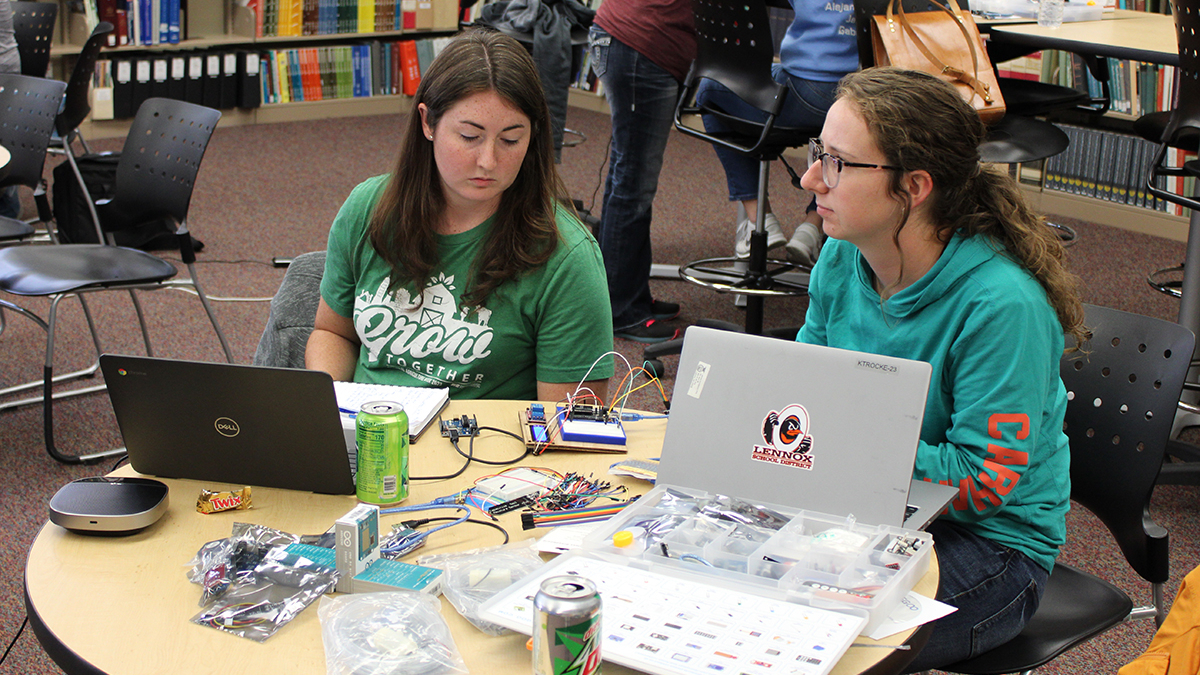
Lincoln, Neb. —Educators across Nebraska and South Dakota were part of the inaugural class for the Automation in the Heartland workshop in October at the University of Nebraska-Lincoln’s Panhandle Research Extension and Education Center in Scottsbluff. The class is funded through the USDA National Institute of Food and Agriculture (NIFA) to give educators a beginning in coding, building microcontroller sensors, and understanding automation systems in agriculture.
“It is one of the areas that is standard for ag education but hasn’t been really taught,” said Troy White, UNL Agricultural Leadership, Education, and Communication Department lecturer in Scottsbluff. Skilled and Technical Science teachers across Nebraska teach coding and automation, and White wants to get the ag educators involved.
The two-year cohort will focus on the Arduino microcontroller running various sensors and using the controller to run Computer Numerical Control (CNC). This year educators are learning five activities to engage with students. They will have pre-written codes and have learned to modify and edit the code rather than spending time writing their own codes. The class will be looking at a variety of livestock and plant systems, from grain bin moisture sensors to greenhouse climate control and yard sprinkler timers. The educators loaded up on knowledge and then went home with electronic components, controllers, and sensors to engage with their students.
While the class is focused on agriculture automation, White said it’s open to any agriculture or science teacher willing to take the knowledge back to the class and teach it.
“I took the class because this is my first year of teaching,” said Kyle Brozek, industrial technology instructor at Norris High School in Firth, Neb. “I have an automation class and an electricity and electronics class. I thought the class would be very beneficial to what I would be doing.” Brozek and others received the Arduino Sketch IDE library, where they can use keywords to find and write code for their microcontroller boards.
The educators will be using plywood barns, which students will be able to put together and use to place fans, temperature sensors, and LCD displays. They can also add a grain bin and wind turbine as part of the school project designs. White’s lab at the Panhandle Research Extension and Education Center has a lending library with 3D printers if a school doesn’t have one, and laser engravers will be available at the lab so materials and files can be sent in by teachers to create what they need. White had originally thought the engravers could also be sent to school, but they are too delicate and need to stay in one place.
“We started with 11 teachers this year and hope to grow to 25 each year the next two years, and hopefully have 60 teachers across Nebraska and South Dakota teaching kids how to automate systems, do motor controls, and set kids up for success even without a four-year degree,” White said. With agriculture becoming more and more automated, the importance of students learning the systems and even growing their businesses is something both the educators and White would like to see.
“We live in a continually improving automated world,” Brozek said. “More and more industries are moving towards automation. If our students learn and understand it now, that could give them a step up when they get out of school and into the workforce.”
To learn more and register for future classes, contact White at troy.white@unl.edu.